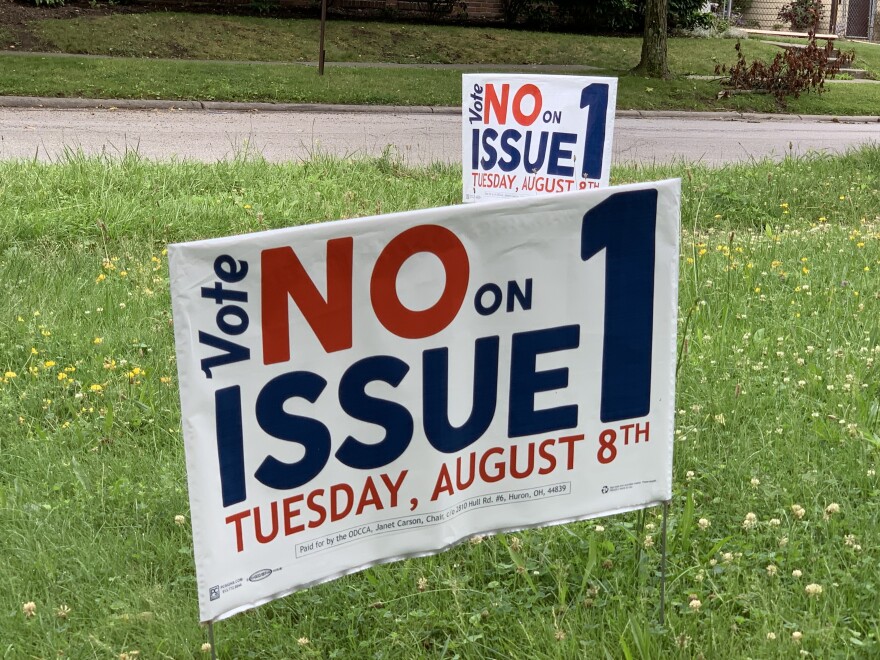Ohio voters Tuesday decisively struck down Issue 1 – which sought to make it harder for citizens to get constitutional amendments on the ballot. For some, the issue was about making it more difficult for an abortion rights amendment to pass in the November election.
Pundits said turnout may be similarly high for the November election but said it may not be the slam dunk for abortion rights that advocates are anticipating.
Robert Alexander, the director of the Institute for Civics and Public Policy at Ohio Northern University, said the “no” on Issue 1 camp won in its messaging campaign--tying the initiative to abortion access and government overreach.
Republicans pushing Issue 1 didn’t give voters a strong-enough argument for why they needed to change the status quo, he said.
“They wanted to make it about abortion, but they didn't want to make it about abortion,” said Alexander. “They wanted to make it about out-of-state interests. And yet they were being funded by out-of-state interests. I think that their messaging on Issue 1 was all over the place.”
He said Republican backers of Issue 1 already saw it as a 'hail mary' to stop an abortion rights amendment on the November ballot, which has been polling favorably among a majority of Ohioans. He doesn’t believe the outcome of the Issue 1 vote will impact Republicans’ messaging going forward or lead to any significant gains by Ohio Democrats.
Bowling Green State University professor Melissa Miller agreed that the special election result alone isn’t a mirror for the general.
"It's not a perfect proxy for (the abortion amendment vote),” she said. “But I think the ‘no side’ can be very hopeful that, in combination with the outcome yesterday, as well as what has happened with reproductive rights measures in clearly red states, like Kansas and Kentucky that have passed and enshrined reproductive rights by these statewide votes, … supporters of reproductive rights in Ohio can go into the November election with some confidence."
About 58% of Ohioans support abortion access, according to a July USA TODAY Network/Suffolk University poll.
Cherie Strachan, the director of the Ray C. Bliss Institute of Applied Politics at the University at Akron, said the issue is having a huge influence on young women and their voting preferences.
“Nationwide 18 to 29-year-old women, in particular, have been increasingly claiming they're liberal and increasingly identifying as Democrats and voting for Democrats post-Roe,” she said. “As a social scientist, I don't typically see a change in voter identification, or people identifying with one ideology or another that looks almost like a straight line. Those stark patterns don't typically happen.”
Suburban woman in Ohio who lean Republican may be an important voting bloc in passing the amendment in Nov, Strachan said.
“You'll see in other states where we do have exit polling (from abortion amendments), you saw that Republican women in suburbs peeled off and voted in support of preserving access,” she said.
The ballot initiative proposing legalizing marijuana in the state of Ohio will also be a big draw for voters, especially young people, who don’t often come out to the polls, Strachan said.
It would be unusual for turnout to be high again for an election that does not have a president, governor or U.S. senator race on the ballot, the experts said. It could have implication for many local elections, said Miller.
“I think we could see is this reproductive rights issue is really going to shape a lot of those local races as well,” she said. “Folks who are running for city council, school board in in places around the state … I think this is really going to be the driving issue up and down the ballot for any of those local races.”


